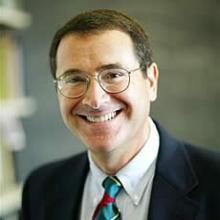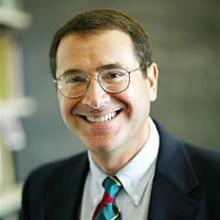Apocalypse now: what Islamic State and Pope Francis have in common
As the Middle East descends ever further into chaos, Rome suddenly finds itself in the crosshairs of Islamic State (IS). Doubtless with an eye on its own security, the Vatican has legitimised the use of military force against IS – but given the apocalyptic thinking of the enigmatic Pope Francis, there may well be more than pragmatism at work here.
Hailed for his apparently progressive social views, even as many of his admirers remain mystified by his repeated references to supernatural conflict, the Holy Father has given his critics and adherents a big clue to understanding his worldview: on several occasions, he has informed journalists that the best way they can understand his priorities and concerns is to read a 1907 science fiction novel by R. H. Benson (1871-1914), an English convert to Catholicism.
Benson was a trophy convert, a son of the archbishop of Canterbury who had taken Anglican orders before his conversion in 1903. His novel, Lord of the World, imagines the condition of England after the collapse of the established church and the disappearance of the House of Lords under suffocating socialism, as a Freemason conspiracy established Communist dominance in Europe.
The atmosphere is one of civilisational conflict, as a mysterious eastern army driven by “religious fanaticism” prepares for war with the West in an attempt to “proselytise by the modern equivalents of fire and sword those who had laid aside for the most part all religious beliefs except that in Humanity.”
The book expresses a new convert’s sense of a crisis in English Christianity, as protestant denominations were eviscerated by theological modernism and left with a religion of sentiment totally insufficient for the complex ethical and technical challenges of the new century.
Lord of the World has attracted very little scholarly analysis, but it demands more attention. As a key text in the formation of Francis’ mind, the novel can help us illuminate the weakness which he identifies in the West, and the dangerous forces which are trying to exploit them.
It might even reflect something of a personal sense of crisis. But what if Lord of the World is a guide to how the Holy Father sees the future of the West?
Living in the end times
Of course, apocalyptic themes of the kind outlined in the Pope’s novel of choice are only one way to interpret today’s conflict in the Middle East. Indeed, too much media analysis of the conflict has focused on the apocalyptic expectations of American evangelical Christians, whose influence on a series of presidents from the 1980s onwards has now been chronicled in formidable detail.
While the US’s foreign policy has sometimes matched the Judgement Day vision shared by a large section of its protestant population, it has not generally been announced or defended with explicit reference to those ideas.
But on the other hand, the ideologues who pose the most serious threats to Middle Eastern security make no bones about referring to their sacred tradition to justify their activity.
And the crusading values that have most obviously been developed in apocalyptic terms are those propelling the military strategy of Islamic State.
These ideas support the identification of Abu Bakr al-Baghdadi as the end-times military leader who will secure the final destruction of the West – the madhi. Islamic State supporters display black flags not merely for the purposes of identification, but to allude to prophecies in the hadith which specify that these banners will identify the end-times army.
This apocalyptic script explains the IS summer 2014 push to secure the otherwise strategically irrelevant town of Dabiq, which certain hadith predict will be the site of the final battle between Muslims and the West. It also explains why IS transported the American hostage Peter Kassig to that town for execution, as first fruits of the massacre to come.
And this is also what explains why Dabiq is the title of IS’s glossy recruitment magazine, which regularly features articles on apocalyptic theology – among them an explanation of why the revival of enslaving the captured is a proof that the end of the world is upon us.
Till doomsday
IS is not the only jihadist movement to be propelled by apocalyptic theology, but more than any other, it has pushed the coming apocalypse into the ideological foreground.
But given the extent to which this prophetic culture is sustained by the well-being of a single person (self-appointed Caliph al-Baghdadi) and by expectations of a decisive victory in a clearly identified location, Islamic State has also made itself vulnerable to shattering ideological defeat.
Pope Francis’ choice of fiction might indicate that he understands all this better than many Western politicians and military strategists do. Re-read today, Lord of the World is an astute and prescient commentary on the threat of eschatological radical jihadism. It’s also a searing critique of the West’s moral and religious vacuum, in which violent absolutism of the IS variety has thrived shockingly well.
It seems that despite all their differences, Pope Francis and IS might share some very similar assumptions about the nature of the last crusade.
![]()
This article was originally published on The Conversation. Read the original article.
Professor Crawford Gribben is a cultural and literary historian whose work concentrates on the development and dissemination of religious ideas, especially in terms of apocalyptic and millennial thought, in the print cultures of Puritanism and evangelicalism.
Crawford Gribben's current projects in the earlier period include researching a book on John Milton’s Theology, completing a book on John Owen and English Puritanism (under contract to Oxford University Press) and editing Dublin: Renaissance City of Literature (with Kathleen Miller). His current projects in the later period include writing Survival and resistance in evangelical America (with Scott Spurlock, under contract to Oxford University Press).
Crawford Gribben serves as co-editor of two series of monographs and edited collections entitled 'Christianities in the trans-Atlantic world, 1550-1800' (Palgrave Macmillan) and 'Scottish religious cultures' (Edinburgh Univeristy Press), and is a general editor of a major new multi-volume and multi-authored project entitled Calvin and Global Calvinism, 1509-2009.
Crawford Gribben directed the 'Radical Religion in the trans-Atlantic world, 1500-1800' project (funded by the Irish Research Council, 2012-13, and DCAL MAGUS, 2014-15), and has written on contemporary religious radicalism for such journals as Books & Culture and The American Interest.
For links to Amazon please click the book cover picture.
To follow what's new on Facts & Arts, please click here.



















